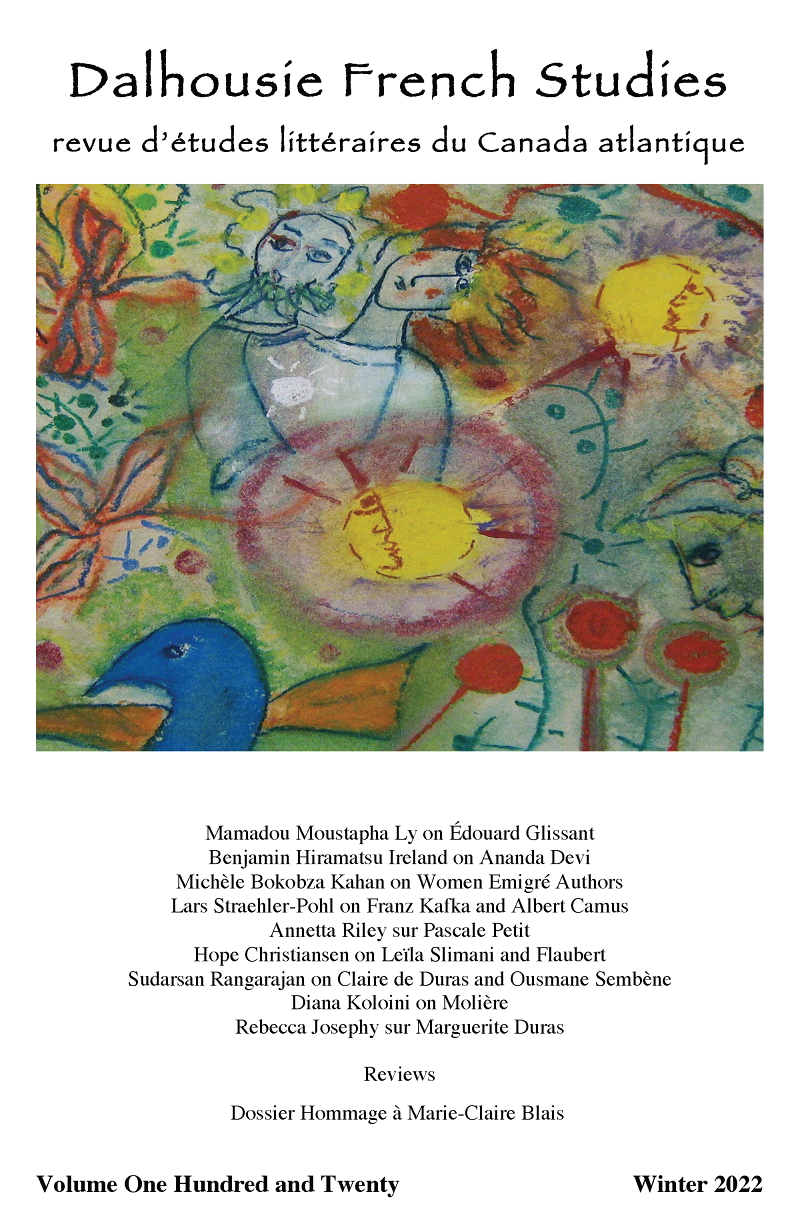Queer N/Oceans : Vore and Child Abuse in Ananda Devi‘s La vie de Joséphin le fou
Résumé
Cet article avance que dans La vie de Joséphin le fou (2003) d‘Ananda Devi, le protagoniste Joséphin adopte la forme d‘un monstre « mi-humain mi-anguille », se livrant à des actes de la vorarephilie, communément appelée « vore », pour rassasier un désir meurtrier sous l‘eau. Cette analyse conçoit l‘univers aquatique de Joséphin comme espace queer, abject et maternel dans lequel Joséphin terrorise deux mineurs. Dans son roman, Devi reconfigure par ailleurs l‘archétype de l‘anguille protectrice apparaissant dans des pratiques chamanistes mauriciennes en faisant de Joséphin une entité à la fois humaine et anguille. La violence de Joséphin contre les enfants, lorsqu‘il se présente sous une telle incarnation monstrueuse, est représentative d‘une métaphore de l‘abus sexuel sur enfant à l‘île Maurice où, lors de la publication du roman, il y eut une estimation de 2.600 mineurs victimes d‘atteintes sexuelles.
This article argues that in Ananda Devi‘s La vie de Joséphin le fou (2003), the protagonist Joséphin assumes the form of a human-eel monster, engaging in acts of vorarephilia or “vore,” to satiate a murderous desire underwater. This analysis conceives Joséphin‘s aquatic world as a paradoxically queer, abject, and maternal space in which Joséphin terrorizes two underage children as both their abductor and protector. Devi further reconfigures in her novel the archetype of the protective eel in Mauritian shamanistic practices by depicting Joséphin as a predatorial human-eel figure. Joséphin‘s violence against the children as he assumes such a monstrous embodiment serves as a metaphor for child sexual abuse in Mauritius where, at the time of the novel‘s publication, an estimated 2,600 children were victims of molestation.


